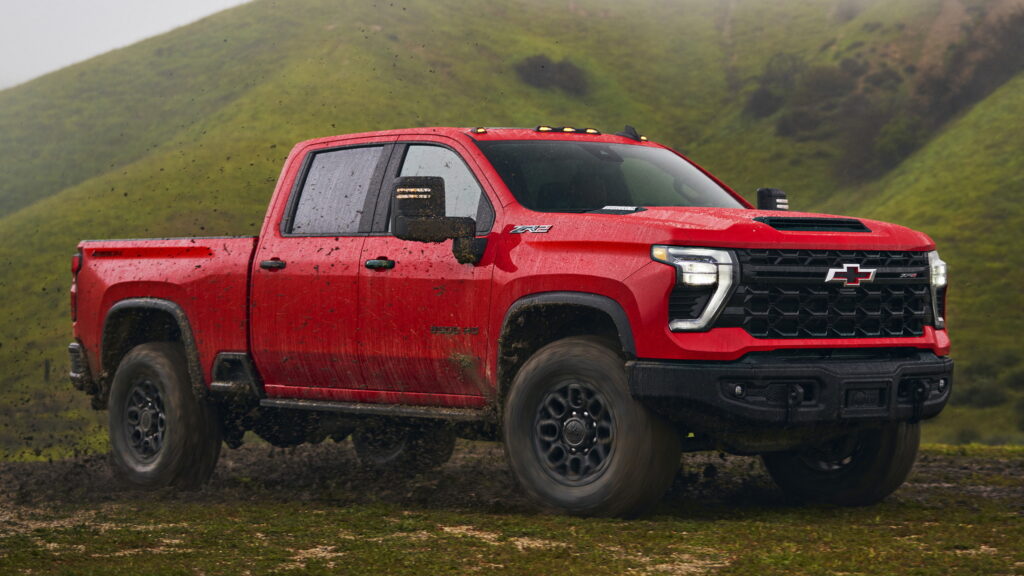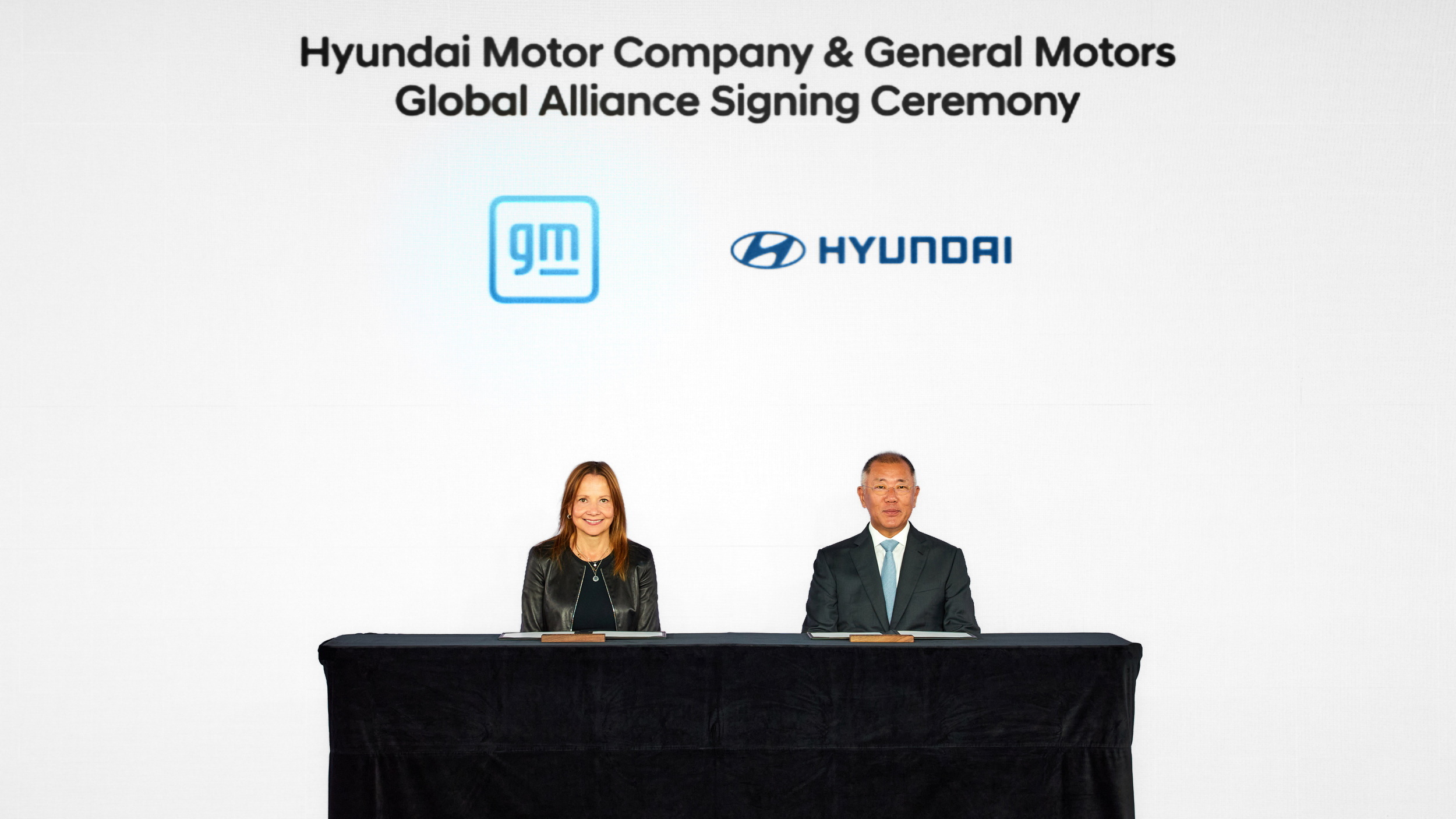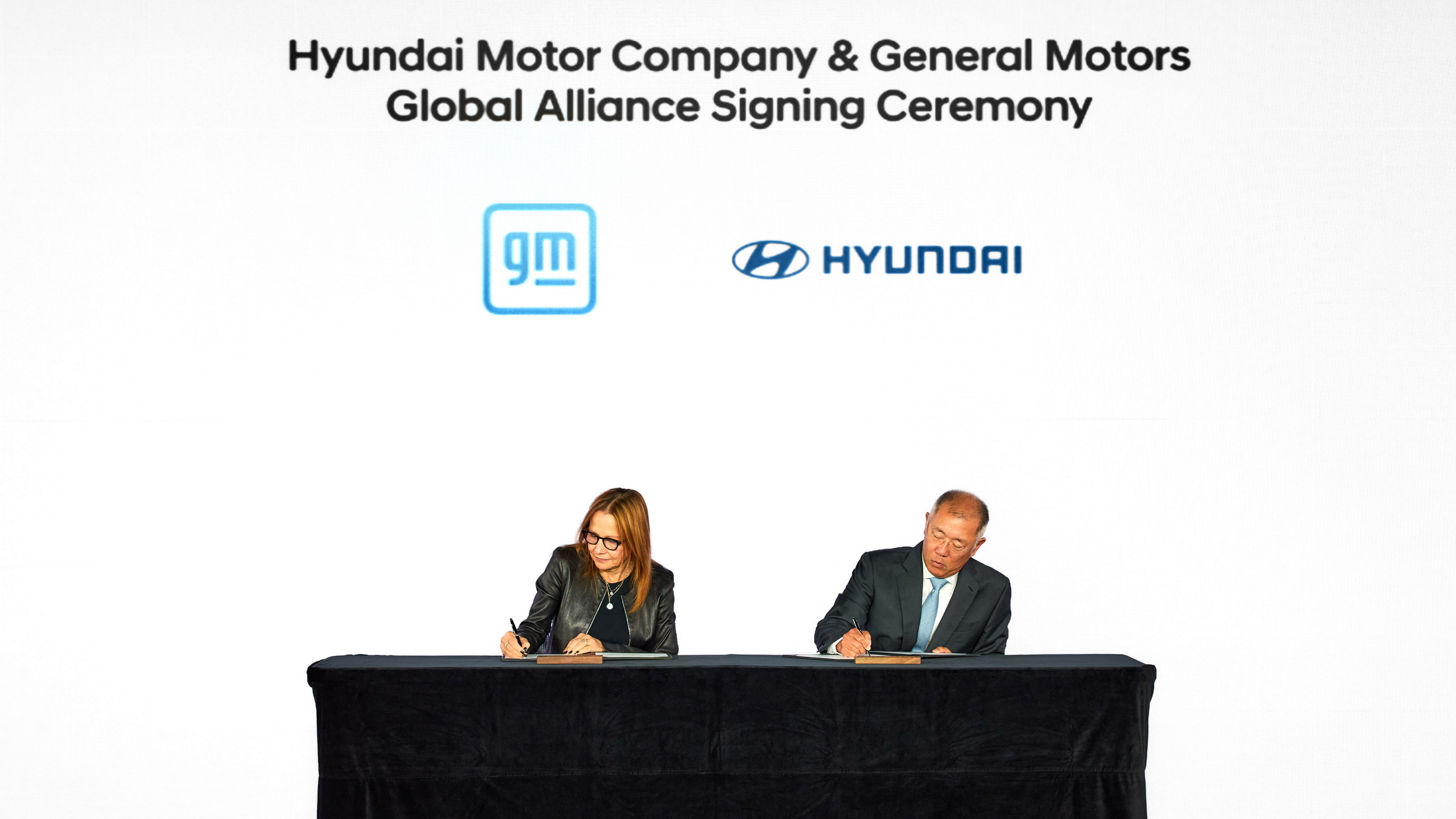- GM and Hyundai are joining forces to develop pickup trucks for the Latin American market, according to Korean media.
- The pair might sell badge-engineered versions of their vehicles and exchange stock holdings, Pulse reports.
- In September, GM boss Mary Barra and Hyundai Group chief Euisun Chung announced a joint initiative.
A pickup truck could be the first fruit from a team-up between General Motors and Hyundai, but don’t count on seeing it on American roads any time soon.
The two automakers signed a non-binding agreement to explore collaboration opportunities in September, including developing new vehicles together, but stopped short of detailing what those vehicles might be. But now Korean media say that the first product from the joint operation could be a truck for the Latin American market.
Related: GM And Hyundai Want To Make Cars Together
Reports claim GM and Hyundai (the Group, rather than the brand) plan to jointly develop multiple trucks to cash in on a booming market that generated $208.6 billion globally in 2023. GM is already a big player, but Hyundai is keen to increase its slice of the pie.
However, rather than joining forces to create a series of new trucks from scratch, the report suggests the two automakers will leverage their existing assets and are looking at a badge-engineering program. The result could be GM selling smaller Hyundai trucks with its logos on the hood and Hyundai hawking GM’s big trucks under its own name.

Since the initial agreement was signed in September, GM CEO Mary Barra and Hyundai Motor Group chairman Eusisun Chung have met again in the US to discuss their plans.
“During the latest meeting, the two leaders reviewed the progress made since the MOU was signed,” a Hyundai official told Korea’s Pulse. “We are exploring various areas for bilateral collaboration, ranging from vehicle development to future energy solutions.”
The report claims the two automakers are considering an exchange of (financial) stock to strengthen their partnership, and back in September the pair said they could jointly develop powertrains, supply chain improvements and clean-energy technologies including hydrogen and electric in addition to new vehicles.








